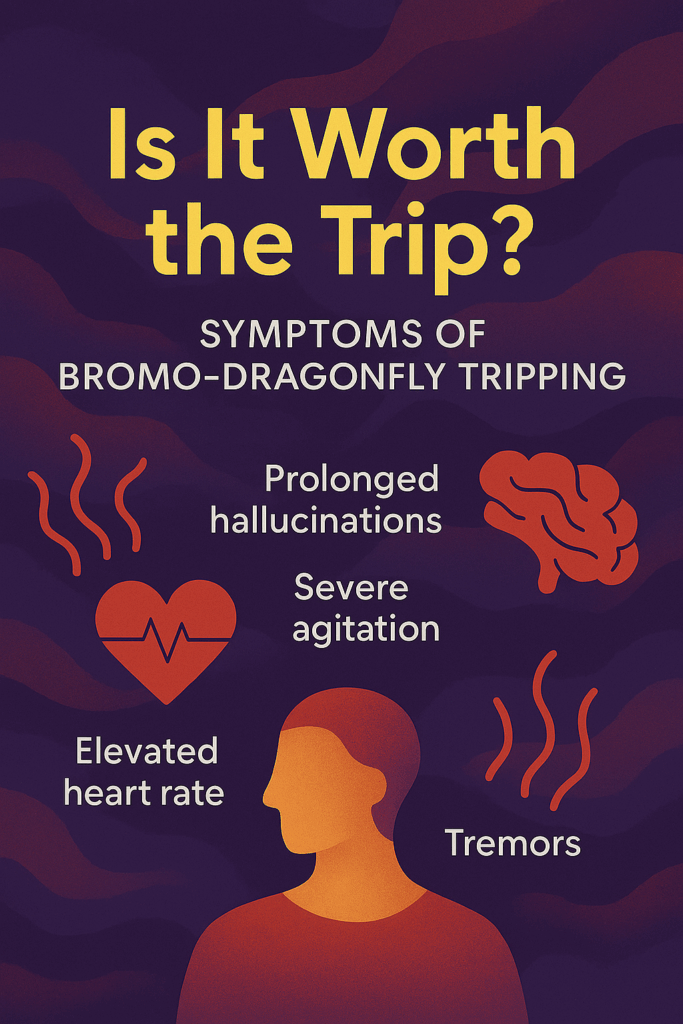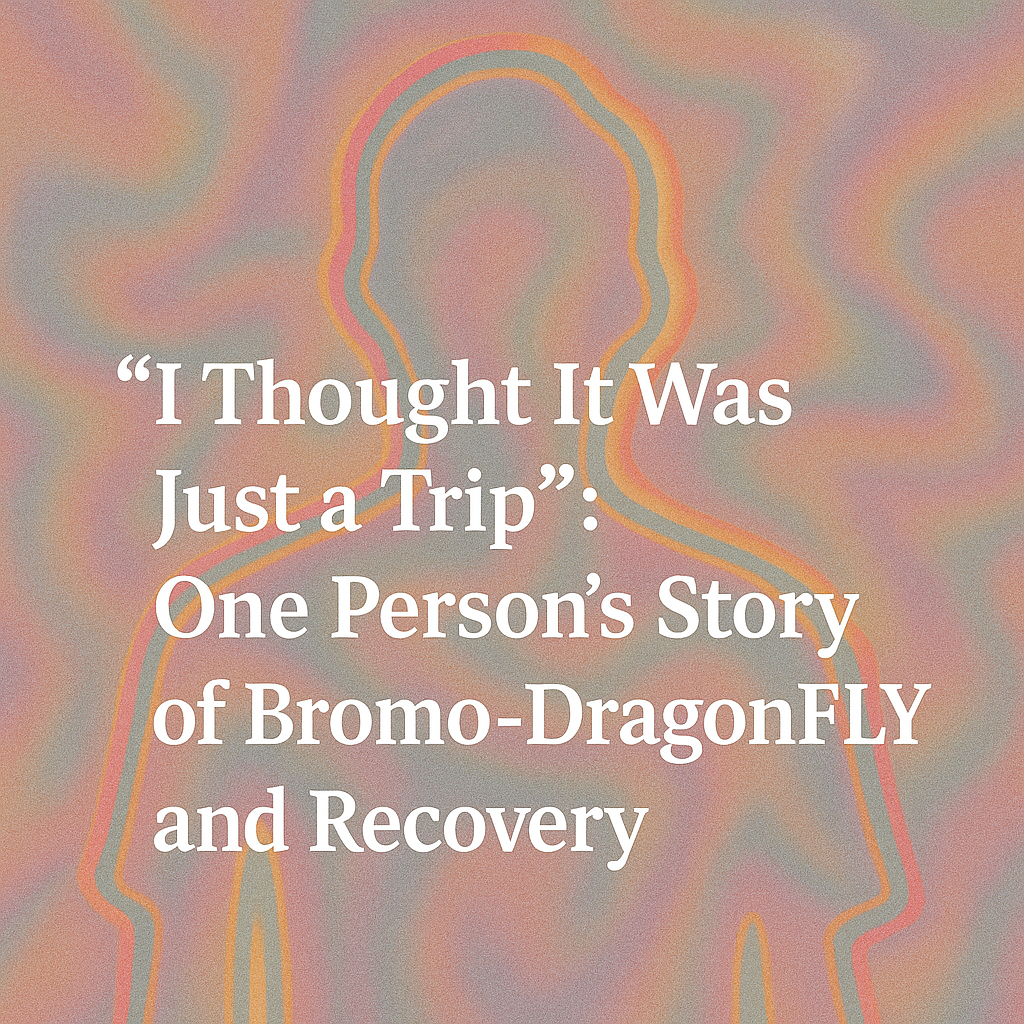It started like it always did—quiet. Nobody knew I was using again, and I told myself that meant it wasn’t a problem.
I wasn’t out getting trashed. I wasn’t missing work. I was just taking the edge off. Just experimenting. Just a trip, like any other. I’ve had hundreds of trips. But none like this.
And it almost cost me my life.
I Didn’t Think I Was “That Kind of Addict”
Bromo-DragonFLY wasn’t even something I meant to try. I thought it was acid. The guy who sold it to me said it was “like LSD but stronger.” I figured I could handle it. I’d done hallucinogens before. I even told myself they weren’t real drugs because I wasn’t chasing a high—I was chasing insight. Creativity. Relief.
I didn’t tell my partner I had started using again. I told myself I didn’t want to worry her, but really, I didn’t want the questions. Didn’t want to explain why I still needed to escape. Didn’t want to address being reminded of past addiction issues.
But this trip didn’t end.
72 Hours of Hell—and a Hospital Bed
The hallucinations wouldn’t stop. My body wouldn’t stop shaking. I couldn’t breathe without feeling like I was suffocating in my own skin. I ended up in the ER with a heart rate so high they thought I was having a heart attack.
My partner found out everything at once—from the doctors, not from me.
That was the moment I stopped being able to pretend.
What Bromo-DragonFLY Really Does
This drug doesn’t behave like others. It lasts for days. It can cause seizures, hallucinations, and vasoconstriction—meaning it cuts off blood flow to parts of your body. People have lost fingers, toes, even their lives after taking it.
It’s sold online. It looks like LSD. And it’s spreading among people like me—people who don’t think they’re addicts because their lives still look okay on the outside.

Detox Was Just the Beginning
The physical detox was rough. I needed around-the-clock support at first just to feel safe in my own skin again. Midwest Recovery Center helped me get through that critical first phase. They didn’t just treat the drug—they treated me. Once the acute symptoms faded, the emotional aftermath began.
That’s when I was introduced to their full drug addiction treatment approach. It wasn’t about “fixing me”—it was about helping me build something stronger than secrecy.
The Mental Fallout Was Just as Real
The trip might’ve ended, but the trauma didn’t. Even after my body stabilized, my mind was wrecked. I couldn’t sleep without flashbacks. I couldn’t be alone without spiraling. And every time I closed my eyes, I’d feel like I was slipping again—like my brain wasn’t sure if it was still in the trip or not.
That kind of terror doesn’t just fade. It imprints. It shakes your sense of safety in your own mind.
That’s why therapy mattered so much. I had to face the shame of what happened. The fear that I’d done permanent damage. The guilt of hiding everything from someone I love.
And in group, I wasn’t alone. There were others who had been through their own versions of hell—and somehow, hearing their stories helped me tell mine. Slowly, the trip stopped owning my story. I started reclaiming it.
IOP Helped Me Rebuild My Life—Without Disappearing From It
I didn’t need to check into a 30-day inpatient program. I needed a way to get honest, stay accountable, and repair the damage—while still living my life.
That’s what I found in this outpatient program. The group sessions gave me connection. The one-on-one counseling helped me understand why I kept using, even when I knew better. And the flexibility gave me space to show up—for myself, for my job, and for my relationship.
Every session helped me practice telling the truth again—and that’s where real sobriety started.
If You’re Still Hiding It, You’re Not Alone
I know the mental gymnastics it takes to convince yourself you’re fine. I know how exhausting it is to keep secrets from someone who loves you.
But here’s what I learned: the shame of hiding it is worse than the fear of facing it.
You don’t have to hit rock bottom to get help. You don’t have to confess everything in one breath. You just have to stop pretending you’re okay when you’re not.
📞 Want to Talk to Someone Who Gets It?
At Midwest Recovery Center, we offer flexible, effective care—like our intensive outpatient program in Ohio—for people who need support without judgment. Whether you’re using more than you meant to or just had a wake-up call of your own, we’re here.
Call us at (833) 657-0858 to talk to someone who understands. No shame. No pressure. Just a safe place to get honest—and get help.
















